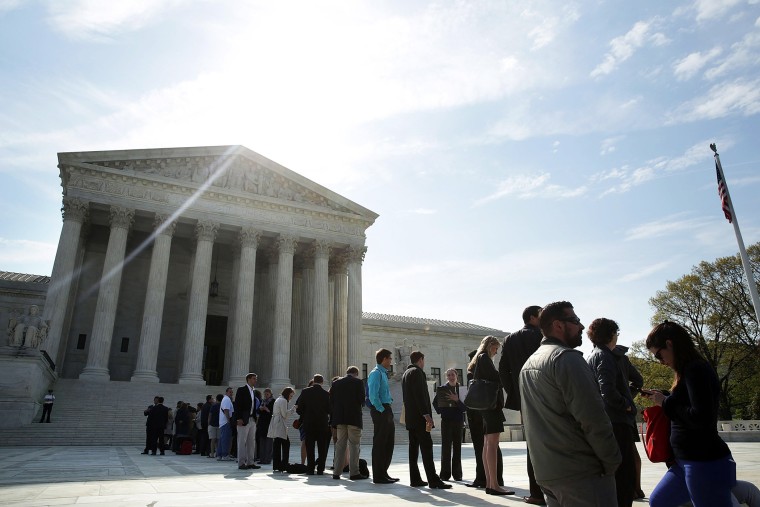First up from the God Machine this week is a look at the real-world consequences of a Supreme Court ruling on the separation of church and state.
Remember Greece v. Galloway? The case dealt with local council meetings in Greece, N.Y., a Rochester suburb, which hosted an informal "chaplain of the month" to deliver an invocation before the board dealt with official business. Nearly all of the invited chaplains were Christian, and "more often than not," the Christian clergy "called on Jesus Christ or the Holy Spirit to guide the council's deliberations."
Some local citizens sued, arguing that the First Amendment should prevent local government from incorporating Christian prayers into official community meetings. In a 5-4 decision handed down in May, the high court's conservatives disagreed, reversing a unanimous appellate court and concluding that "ceremonial prayer" is permissible.
This week, as Sahil Kapur reported, officials in Greece adopted a formal policy to put its prayer practices in place.
Less than four months [after the high court ruling], the town of Greece has adopted an invocation policy that excludes non-religious citizens and potentially shuts out faiths that aren't well-established in the town, according to a top secular group. Seeking to "avail itself of the Supreme Court's recognition" that government prayer is constitutional, the new policy restricts opening remarks to "assemblies with an established presence in the Town of Greece that regularly meet for the primary purpose of sharing a religious perspective."
In practice, this suggests non-believers -- who lack "established" meetings to discuss religious perspectives -- may be deliberately excluded. The same is true for minority faiths who lack enough local members for an established congregation.
The Rev. Barry W. Lynn, the executive director of Americans United for Separation of Church and State (and a long-time friend), told Kapur, "They said they're open to anybody. Now they're not open to anybody. It's really a scam.... They only want religious people -- frankly they only want Christians -- to participate. This is a step backward."
If atheists and other religious minorities submit requests to lead invocations and are rejected, it may very well lead to a new round of litigation.
Also from the God Machine this week:
* What an unusual case: "The Archbishop of Oklahoma City is dropping his lawsuit against a devil-worshiping group that had threatened to defile a consecrated communion wafer allegedly stolen from the Roman Catholic Church. In a lawsuit filed in district court in Oklahoma County on Wednesday, lawyers representing Archbishop Paul Coakley demanded the return of a communion wafer obtained by a Satanic group."
* Conservative media outlets got worked up recently about a Tennessee teenager who was reportedly punished after saying "God bless you" in class after another student sneezed. The details of what actually happened are less shocking.
* And TV preacher Pat Robertson this week reflected on Robin Williams' death, telling "700 Clu;b" viewers the entertainer took his own life because of religion: "You see these very popular people in the media who commit suicide, like Robin Williams recently, and you say, 'What is the deal with him? What happened?' ... You see, the god of the heathen are idols and everything that you seek in life can ruin you unless that something and somebody is God himself.... You won't want to commit suicide after you have come to Him."
